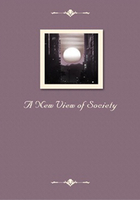
第9章
The Principles of the Former Essay continued,and applied in part to Practice It is not unreasonable to hope that hostility may cease,even where perfect agreement cannot be established.If we cannot reconcile all opinions,let us endeavour to unite all hearts.
MR VANSITTART'S LETTER TO THE REV.DR HERBERT MARSH
General principles only were developed in the First Essay.In this an attempt will be made to show the advantages which may be derived from the adoption of those principles into practice,and to explain the mode by which the practice may,without inconvenience,be generally introduced.
Some of the most important benefits to be derived from the introduction of those principles into practice are,that they will create the most cogent reasons to induce each man 'to have charity for all men'.No feeling short of this can indeed find place in any mind which has been taught clearly to understand that children in all parts of the earth have been,are,and everlastingly will be,impressed with habits and sentiments similar to those of their parents and instructors;modified,however,by the circumstances in which they have been,are,or may be placed,and by the peculiar organizations of each individual.Yet not one of these causes of character is at the command,or in any manner under the control of infants,who (whatever absurdity we may have been taught to the contrary),cannot possibly be accountable for the sentiments and manners which may be given to them.And here lies the fundamental error of society;and from hence have proceeded,and do proceed,most of the miseries of mankind.
Children are,without exception,passive and wonderfully contrived compounds;which,by an accurate previous and subsequent attention,founded on a correct knowledge of the subject,may be formed collectively to have any human character.
And although these compounds,like all the other works of nature,possess endless varieties,yet they partake of that plastic quality,which,by perseverance under judicious management,may be ultimately moulded into the very image of rational wishes and desires.
In the next place these principles cannot fail to create feelings which,without force or the production of any counteracting motive,will irresistibly lead those who possess them to make due allowance for the difference of sentiments and manners,not only among their friends and countrymen,but also among the inhabitants of every region of the earth,even including their enemies.With this insight into the formation of character,there is no conceivable foundation for private displeasure or public enmity.Say,if it be within the sphere of possibility that children can be trained to attain that knowledge,and at the same time to acquire feelings of enmity towards a single human creature?The child who from infancy has been rationally instructed in these principles,will readily discover and trace whence the opinions and habits of his associates have arisen,and why they possess them.At the same age he will have acquired reason sufficient to exhibit to him forcibly the irrationality of being angry with an individual for possessing qualities which,as a passive being during the formation of those qualities,he had not the means of preventing.
Such are the impressions these principles will make on the mind of every child so taught;and,instead of generating anger or displeasure,they will produce commiseration and pity for those individuals who possess either habits or sentiments which appear to him to be destructive of their own comfort,pleasure,or happiness;and will produce on his part a desire to remove those causes of distress,and his own feelings of commiseration and pity may be also removed.The pleasure which he cannot avoid experiencing by this mode of conduct will likewise stimulate him to the most active endeavours to withdraw those circumstances which surround any part of mankind with causes of misery,and to replace them with others which have a tendency to increase happiness.He will then also strongly entertain the desire 'to do good to all men',and even to those who think themselves his enemies.
Thus shortly,directly,and certainly may mankind be taught the essence,and to attain the ultimate object,of all former moral and religious instruction.
These Essays,however,are intended to explain that which is true,and not to attack that which is false.For to explain that which is true may permanently improve,without creating even temporary evil;whereas to attack that which is false,is often productive of very fatal consequences.The former convinces the judgement when the mind possesses full and deliberate powers of judging;the latter instantly arouses irritation,and renders the judgement unfit for its office,and useless.But why should we ever irritate?Do not these principles make it so obvious as to place it beyond any doubt,that even the present irrational ideas and practices prevalent throughout the world are not to be charged as either a fault or a culpable error of the existing generation?The immediate cause of them was the partial ignorance of our forefathers,who,although they acquire some vague disjointed knowledge of the principles on which character is formed,could not discover the connected chain of those principles,and consequently knew not how to apply them to practice.They taught their children that which they had themselves been taught,that which they had acquired,and in so doing they acted like their forefathers;who retained the established customs of former generations until better and superior were discovered and made evident to them.